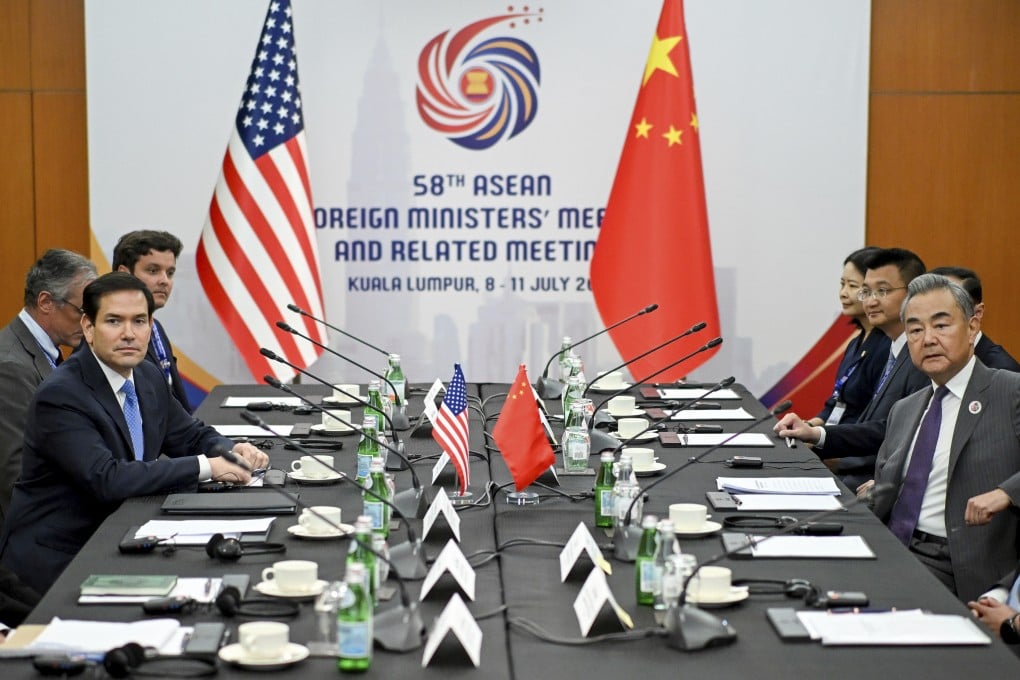
Source: scmp.com
Image content: The image shows a formal diplomatic meeting with two delegations seated across a conference table, featuring microphones, documents, and water bottles. Flags of the United States and China are displayed prominently, and a backdrop mentions the 58th ASEAN Foreign Ministers’ Meeting in Kuala Lumpur.
Summary
At the ASEAN meetings in Kuala Lumpur, U.S. Secretary of State Marco Rubio and China’s Foreign Minister Wang Yi competed for regional influence as looming U.S. tariffs on 14 countries—many in Southeast Asia—clouded Washington’s credibility. Rubio sought backing for U.S. trade restrictions on China and reassured partners about American commitment, while signaling possible preferential tariff outcomes for ASEAN. Yet Trump’s sweeping tariff threats stoked doubts among allies and partners, complicating U.S. efforts to secure quick trade and strategic wins. Wang pressed Southeast Asian nations to resist U.S. “tariff coercion,” promoted China as a reliable development partner, and advanced China-ASEAN economic ties, as both sides pledged to keep channels open and manage differences, including the prospect of a Xi–Trump meeting later this year.
Key Points
- Rubio courted ASEAN support but faced skepticism due to broad U.S. tariff threats.
- Wang Yi urged resistance to U.S. pressure and cast China as a dependable partner.
- Both sides described Rubio–Wang talks as constructive and vowed to manage differences.
- ASEAN leaders criticized unilateral tariffs; some explored concessions to blunt economic harm.
- Regional dynamics underscore Asia’s deep trade with China and doubts about U.S. long-term reliability.